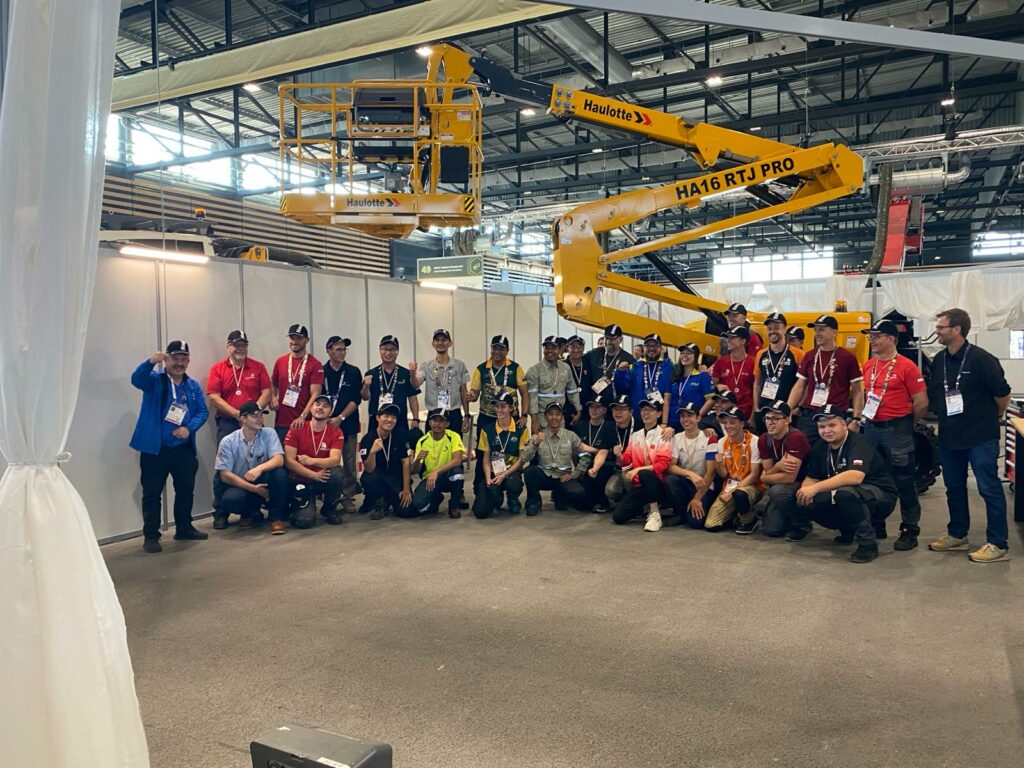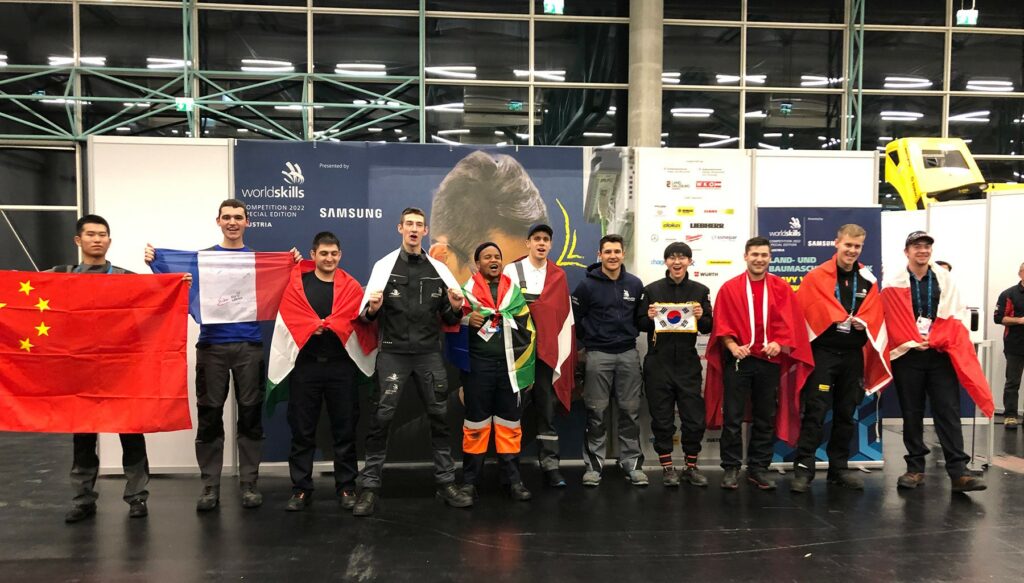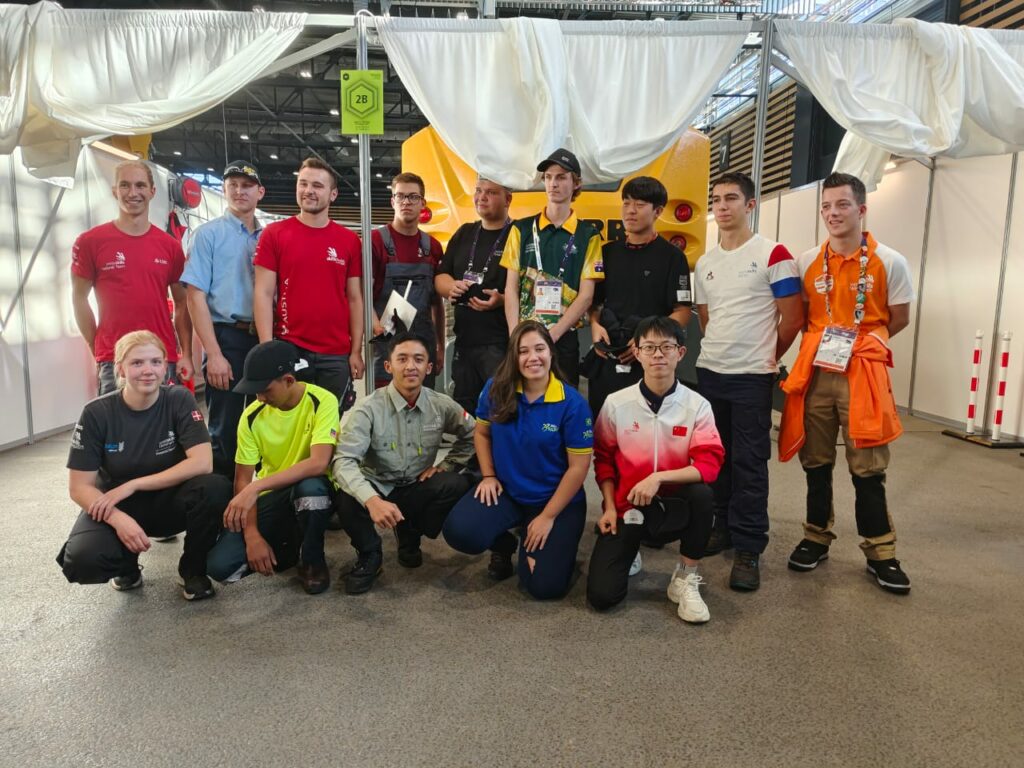Training tomorrow’s talent for a rapidly changing sector
The world of machinery maintenance is undergoing rapid transformation, propelled by electrification and digital innovations. At the heart of this evolution, passionate individuals like Thomas Murphy, Skill Competition Manager at WorldSkills, share their expertise to raise global standards in technical skills.
Why does it matter now more than ever? Because training the next generation of technicians is crucial for sustaining industries such as construction and logistics. It also offers young people a future-facing career with abundant challenges and opportunities for growth.
Thomas Murphy is a lecturer at the Technical University of Dublin (TU Dublin), formerly Dublin Institute of Technology (DIT), and has spent over 40 years nurturing technical talent in construction plant machinery and heavy vehicle maintenance.
A lifelong dedication to training and excellence
Thomas’ passion for training extends beyond the classroom. Thomas has been involved with Ireland Skills from the start of his career, playing a key role in WorldSkills competitions since 2015. He has attended events around the globe, from Brazil and Abu Dhabi to the Special Edition and Lyon, progressing from an observer to Deputy Chief, and eventually to Skill Competition Manager for Heavy Vehicle Technology.
“I still love coming in on Monday mornings,” he says. “If I can promote apprenticeship in any way, I will.”
A lifelong dedication to training and excellence
In Murphy’s view, initiatives like WorldSkills go beyond contests, serving as platforms for exchanging best practices worldwide.
“When experts from around the world gather, we learn from one another,” he explains.
One difference he notes is that, in North America, major components such as engines or transmissions are often repaired on-site, while in Europe, they’re typically replaced by specialists. Such insights help educators and trainers refine their programs and keep them aligned with real-world needs.
According to Murphy, setting and maintaining global benchmarks is at the core of WorldSkills.
“We don’t create the standard in a vacuum. We reach out to companies like Haulotte and ask what they consider their world standard. But the bar must remain ambitious yet attainable. It’s not helpful to set it so high that no one can reach it.”

Challenges and opportunities in the industry
Time is one of the biggest training challenges, especially as electronics adapted from the auto industry are appearing almost overnight in heavy machines. “Technicians should be trained prior to the release of new models,” Murphy emphasizes.
Another issue is bridging skill shortages: “We need more contact between companies and colleges. That’s where WorldSkills can help, by creating bridges.”
Ireland’s perspective: a heritage of hands-on learning
Ireland has a longstanding tradition in technical training, going back 70–80 years in the automotive sector. Over time, it has evolved into specialized trades for heavy vehicles, light vehicles, construction plant, and more.
“Electronics are now everywhere—hydraulics, pneumatics, engine controls—it’s all integrated,” he notes.
Murphy highlights the “Access to Apprenticeship” program, where early school leavers sample different trades at TU Dublin. Over 80% secure placements afterward.
“Many never knew these opportunities existed. This gives them a second chance to find their path.”

Global initiatives and Haulotte’s role: building bridges, not just machines
Murphy believes companies like Haulotte play a vital role in shaping the workforce: “You need to reach out to colleges and training institutes, not just to sell, but to engage. It’s not about what you can get, but what you can give.” Haulotte’s training department already offers hands-on sessions when new machines launch, though more industry-wide collaboration would help scale these efforts.
Ireland’s government-funded SOLAS also unites industry and educators to update apprenticeship curricula, but Murphy warns the process can be slow and insular: “It can become a closed circle. We need to put the apprentice’s interest at the top of the list.”
Looking forward: a call for commitment and collaboration
Murphy repeatedly returns to one key point: the importance of passionate people willing to invest time and energy in training.
“WorldSkills is hard work. It only works if people are committed and care,” he emphasizes.
He also advocates updating equipment in training institutions, which often lag behind current industry standards:
“We’re working on machines that are 5 to 10 years old. Renting or donating newer equipment would make a big difference. The real question is, what can we put into this? That’s the right mindset.”
As the machinery sector becomes more sophisticated, Murphy’s message is simple:
“We need to work together—to connect, to train, and to prepare young people for the real world.”

Moving forward together toward excellence
Thomas Murphy’s journey illustrates the power of collective effort: uniting industrial expertise, educational best practices, and a passion for hands-on learning. For companies like Haulotte, eager to support rising talent, forging closer ties with training institutions and fostering international collaboration is key.
Ultimately, it is this spirit of cooperation that will advance machinery maintenance and, by extension, the entire access industry.